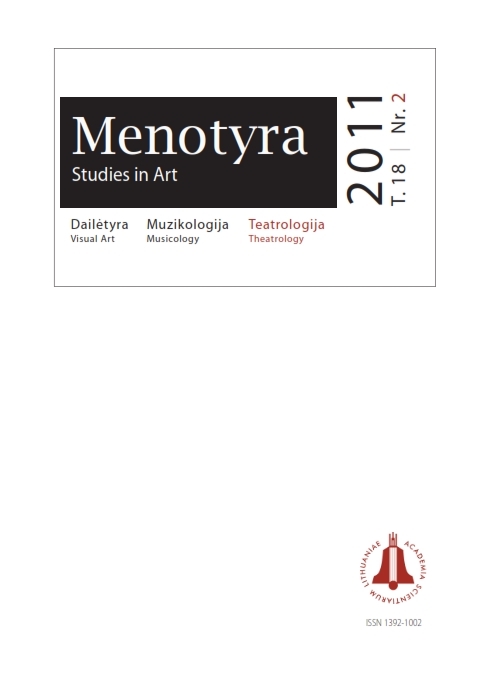Autorinė režisūra posovietinėje Lietuvos teatro scenoje
Situation of authors’ direction in Post-Soviet Lithuanian theatre
Author(s): Rasa VasinauskaitėSubject(s): Theatre, Dance, Performing Arts, Post-Communist Transformation
Published by: Lietuvos mokslų akademijos leidykla
Keywords: authors’ direction; actualization; interpretation; perception; theatre
Summary/Abstract: In the repertory of the Lithuanian theatre of 1990–2010 one can trace the changes of directorial interpretation. Classical and contemporary dramas, texts based on the works of literature, while being presented on the stages, acquire a new form, which depends on the directors’ individual approach to the concepts of time, society and the communicative tasks of the performance. In this article, based on the universal types of theatre directors, presented by Patrice Pavis (auto-textual, ideo-textual, inter-textual) three types of the performances, characteristic to the Post- Soviet Lithuanian theatre, are distinguished: global meaning / image, (socio) critical / performative, imagination/participation. These types represent the directorial intentions and artistic system of each director, which changes reacting to the “horizon of expectations” of the audience. The first type consists of the performances produced on the works of classical dramaturgy and literature, the second type – on contemporary plays, the third – productions on collective dramaturgy, negating the usual theatrical imagery and provoking the imagination of the audience. These types of the performances reflect the changes of the directorial methods, but do not disprove the function of the director as the author of the performance. The director becomes the author of theatrical event, providing this event with an aesthetical, cultural and historical value.
Journal: Menotyra
- Issue Year: 18/2011
- Issue No: 2
- Page Range: 103-109
- Page Count: 7
- Language: Lithuanian

